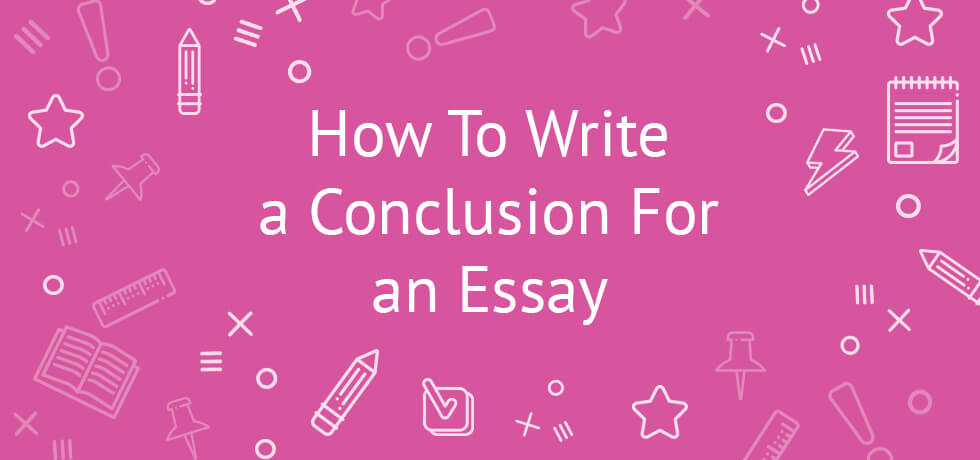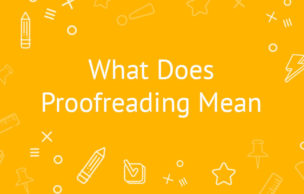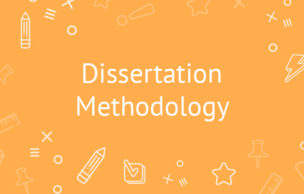How To Write A Conclusion For An Essay

The saying goes, he who laughs last laughs longest. It simply means that it does not matter what happened in the beginning or the middle, the ending is always the most important. A similar thought can be applied when you are writing your essay or any kind of writing, whether formal or informal.
The conclusion holds a lot of importance in the essay since it is what the reader will read last in the given publication. It should leave an image in the mind of your reader or even a thought that they will use to remember what your piece was about. So, how do you go about making that conclusion as interesting and impactful as the rest of your essay? How do you write an essay conclusion?
What's The Goal of a Conclusion?
Everyone knows that a conclusion is used to wrap up an essay or any other piece of writing. What most don’t realize is that you cannot use the same conclusion for different kinds of essays. Your essay should guide the direction that the conclusion is going to take and how to go about it such that you achieve the best conclusion possible.
There are a number of things that any good conclusion should do:
- Wrap up your essay without leaving anything out.
- Inform the reader that you have achieved the purpose of the essay.
- It gives the reader closure.
- Deliver an impactful message.
- Trigger a spark of idea inside the reader's mind.
Now, there are different techniques out there that can be applied to almost any type of essay or text that you write. Let's see some core principles as well as ways to deliver your message impactfully and meaningfully.
How To Summarize A Thesis Statement
Basically a thesis statement is a sentence that summarizes the ideas in a paper. It gives what you are writing some direction such that your paper is clear and concise. You should have a really catchy introduction, something that is easy to read such that you can easily explain what your paper is all about; however, needs not pre-empty all the ideas of your paper otherwise it will completely nullify what you are doing.
The next part is the body which is where you deeply discuss all the topics and ideas of your paper. It should be clear and straight to the point without filler words which may bore the reader hence they may not read through your work. Ensure that you cover everything here before moving to the summary or conclusion otherwise you may end up making it too long hence it may not make sense.
The last and again very important part is how you choose to summarize your thesis statement or conclude it. Many people usually restate the ideas in the paper to make the conclusion, but this is unnecessary and will not bring about the effect that you want. What you need to do is summarize what you have said and tie up any lose ends that you may not have covered in the paper. You may choose to do this by posing a question to the reader or by using a quote or any other means that you feel will bring out the effect that you intended.
Create A Catchy Yet Meaningful Essay Conclusion
Your conclusion should not be a rephrase of what you talked about in the body of your paper. This is because it will only leave the reader with unanswered questions and once they realize that the conclusion is no different from what they were reading, they may choose not to complete reading it.
However, if you choose to go a different direction and address any ideas that may not have been very clear in your body, you will get a completely different result. This is done best by reading carefully through your whole paper as if you were not the one who wrote it and try to identify any questions that you may have which you will use to summarize and conclude your paper.
Take those questions and creatively address them in your conclusion. Stay focused on the task so that you may not lose the reader and you will have yourself the best conclusion possible.
Grab The Attention Of The Reader In Your Ending
You have put a lot of effort in ensuring that your introduction and the body is the best it can be so you need to maintain this when you are concluding. This means that you have to maintain the reader’s total attention when concluding and there are two ways you can do this.
End how you started. If you started with a quote or saying then you need to end your paper in a similar way. Do not choose quotes or sayings that are so distant in meaning from the ones you had started with. Go with something simple and similar in meaning so that the reader may be able to connect the two.
Rhetoric questions. This is by far the easiest and most common way of concluding a paper. You coax the mind of the reader to think about something or influence them to take some decision on a given matter.
It is not a must you conclude your paper in the mentioned ways, you can go with whatever you like or feel that it will give you the best outcome. The main point is to ensure that you have ended it in an interesting way for the reader.
Essays That May Need A Different Kind Of Conclusion
The mentioned ways of concluding apply to most essays and not so much to others. Some essays dictate that you conclude in a different manner due to the nature of what is being discussed. Some of these include:
These essays require that you take a particular stand in a given topic and you actively and consciously discuss why you decided to take that point of view.
The conclusion to this kind of essay can be like what has been discussed above; however, you will need to give it a little boost just so that you may not leave the reader hanging.
Throughout the body of this essay, you will be discussing and proving why your stand on a subject matter is the best. The conclusion should also reflect that. What this means is that your conclusion should explain to the reader why the stand you have taken is important and why you believe that it was the correct way to go. By doing this, you will be justifying your whole essay without simply restating the points you had covered.
You should also paint a picture to the reader of how the different the situation may be if everyone chose the opposite of what you are standing for. Do not discuss this in too many details otherwise you will start writing a whole different paper. The idea is to coax the minds of your readers.
Unlike most essays, a narrative is a story that you are telling to your reader. You are not discussing or trying to explain a point. This is what makes it so different, which means that the conclusion will also be different.It will not make sense if you tried to capture the main ideas of your narrative in your conclusion as this will only confuse the reader. The better way of going about this is by giving the moral of the story. A rhetoric question can also be used in this case but you have to be creative in the way you put it across.
It should be short and simple, do not get into too many details when concluding. It should leave the reader with a thought or an image at the end; this is the best way to end a narrative properly.
And Now For Our Conclusion
The ending of your essay should culminate your ideas. It should leave your reader feeling informed and not confused as is the case in most essays. Make your conclusion descriptive, emphasizing the core message while maintaining a light wording. Simplicity is important when concluding so as to keep the reader interested to the very last word. However, if you are having some difficulty concluding your work, you can rely on our experienced and qualified essay writers to come to your aid. They will give you ideas that you can use to end your paper and hence successfully complete it.





